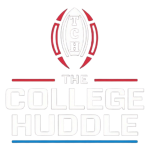
Florida State vs ACC
Michael Alford, Florida State’s athletic director, is at the helm of one of college sports’ most dynamic programs. In his third year, Alford reflects on FSU’s recent seasons and the disappointment of missing the College Football Playoff in 2023. Alford isn’t the main driver behind FSU’s attempt to leave the ACC, but he leads a powerful athletic brand making headlines since the exit attempt was revealed in February 2023.
Since then, Florida State has put significant effort into creating a legal pathway for other schools considering similar moves. “I’d say there’s a lot of interest in our approach,” Alford told CBS Sports. “Many people have questions about how we got here. It’s about looking at where college sports are heading and positioning ourselves for the future.”
FSU sued the ACC in December, followed by Clemson in March, reflecting a broader struggle over media rights revenue. Both schools believe they deserve more than the $41 million annually paid under the current ACC contract with ESPN. Alford maintains a good relationship with ACC commissioner Jim Phillips despite the tension.
The potential cost for FSU to exit the ACC is estimated at $572 million. This situation stems from recent conference realignments concentrating power and money in the SEC and Big Ten. Florida State aims to be part of this exclusive group, enhancing its brand value nationwide. “We’re planning for the next five, ten, fifteen years,” Alford said. “We need to make sure we’re positioned for the future of college sports.”
Alford is also exploring private equity options to raise FSU’s value and funding. Venture capital firms like JPMorgan Chase and Sixth Street have shown interest, with initial offers around $75 million. “To use a baseball analogy, we want to run that groundball out,” Alford said about private equity. He is cautiously considering the financial and long-term risks involved.
Several experts believe private equity is the future of college sports, though there are warnings about relying on it too much. The SEC, with its financial strength, is better positioned to handle upcoming changes in college sports. “In my experience, private equity wants to be paid back,” SEC commissioner Greg Sankey said. “I understand their interest in college sports, but I would caution against short-term fixes.”
As Alford plans for the future, he emphasizes positioning FSU for long-term success. With the school’s brand value in mind, he continues to seek opportunities to enhance FSU’s athletic programs and revenue streams.
In the meantime, Alford enjoys his role, navigating the complexities of college athletics while keeping an eye on FSU’s strategic direction.





